By Bill Boyle
Day 3 was another day of outdoors, experiential immersion. We started at Helms Haven Park for water testing with the excellent instruction from Friends of the Rouge. We did chemical testing and benthic marcro-invertebrate searches. Both of these are means to determine water quality. We learned that this kind of testing is not only a way of determining water quality, but a way for students to start to inquire into reasons for the health of the water. How does human behavior affect water quality? Why is water quality important? What does this mean for our actions?
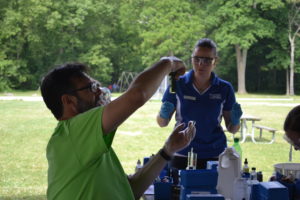
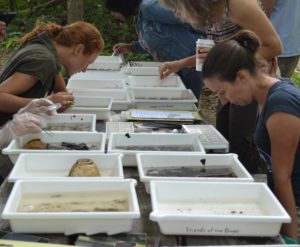
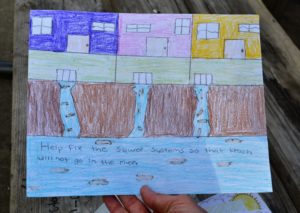
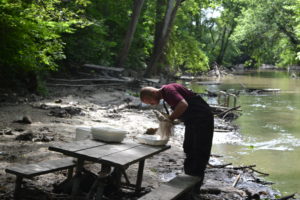
At lunch, Rebecca Nielsen and Ethan Lowenstein gave a nice reminder that in the SEMIS approach, these kinds of activities aren’t meant to be ends to themselves, but offer the potential to begin of a whole line of inquiry into questions such as: Why is the water quality this way? What affects it? How does our behavior affect it? We should constantly be looking at ways to unveil the beliefs under our actions so that we can help our students to deeply understand the impact our behavior has on the land. As Becca said in order to illustrate the connection between water quality and consumerism, “What we buy ends up in the water.”
After lunch we made a short trip over to the Environmental Interpretive Center at the University of Michigan- Dearborn. There we were lucky to be led by the expert instruction of Dorothy McLeer, Richard Simek, and the legendary Dr. Orin Gelderloos. We learned the history of the landscape, and how to “read” the ways that humans have impacted the landscape. We explored maps of the River Rouge watershed, and were able to see firsthand how action in one area of a watershed affects the whole watershed.
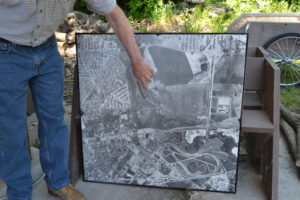
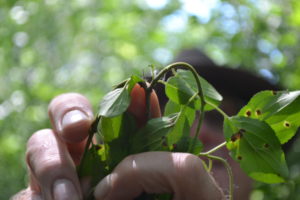
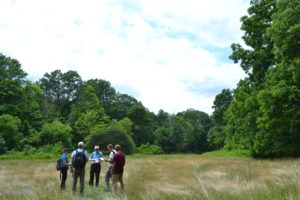
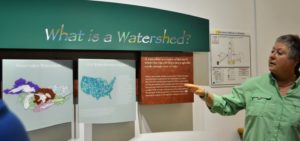
These were all activities that built on the previous two days of the institute. Today gave us both practical activities to use with students as a “way in,” while continuing to nudge our thinking in terms of the ways that we imagine ourselves in our relationship with our ecology.

Trackbacks/Pingbacks